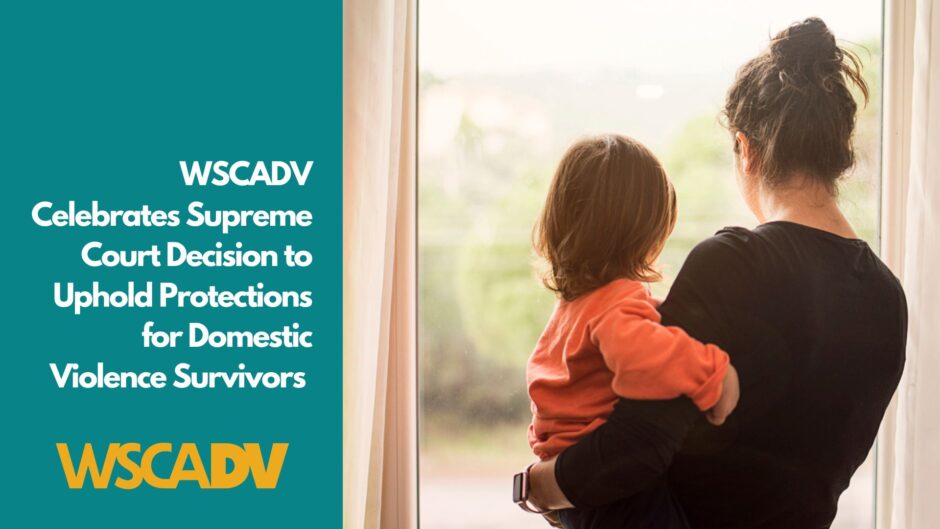
The Washington State Coalition Against Domestic Violence (WSCADV) is grateful for the Supreme Court’s recent ruling in the U.S. v. Rahimi case, which upholds the federal statute prohibiting individuals subject to domestic violence protection orders from possessing firearms. Survivors of domestic violence and their children deserve common-sense protections from abusive people with deadly weapons. This landmark 8-1 decision is a significant victory for the safety and well-being of survivors across Washington State and the nation.
“We are incredibly heartened by the Supreme Court’s ruling,” said Judy Chen, Executive Director of WSCADV. “Protection orders are a critical tool that all survivors deserve access to. By upholding common-sense protections, we can make sure that these measures remain effective and that survivors and their families can access the tools they need for safety and to prevent further harm.”
WSCADV is thankful for the survivors and advocates who courageously shared their stories of fear and violence at the hands of abusive partners and ex-partners. We remember the fatality victims – adults, children, bystanders, responding law enforcement officers – who have died so needlessly.
Research reliably shows a strong correlation between firearm access and domestic violence fatalities. The presence of a gun in domestic violence situations increases the risk of homicide by five times. In Washington State, domestic violence homicide perpetrators use guns more often than all other weapons combined. More than half of the perpetrators were legally prohibited from owning firearms. The Washington State Domestic Violence Fatality Review has consistently identified removing firearms from abusive partners and ex-partners as a priority to protect victims from lethal violence. The Supreme Court’s ruling is a crucial step in upholding common-sense protections for survivors, making it more difficult for abusive people to inflict lethal harm.
The decision has been met with widespread support from legislators, advocates, and community leaders. Domestic violence impacts not only individual survivors but also their families and communities. By reinforcing the safety of survivors, we make all our communities safer.
“Everyone can play a role to end domestic violence,” added Chen. “Whether you’re talking with your legislators, coaching a team, volunteering at a domestic violence program, or helping a friend, you can show survivors that they are not alone and help build a world where all people can live and love freely, without fear.”